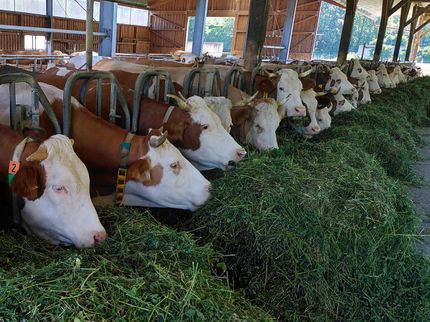Allergic asthma: Researchers identify a key molecule
allergies are becoming more commonplace, particularly in industrialised coun-tries. In addition to hay fever, allergic asthma is currently considered to be one of the most widespread allergies. UFZ researchers and their colleagues from the University of Leipzig have recently been successful in finding a protein that plays a critical role in the development of allergic airway inflammation. The discovery could pave the way for new therapies, as it also influences the pro-gression of the allergy.
Worldwide, there are more than 300 million asthma patients. In Germany alone, 10 - 15 percent of children suffer from allergic asthma that is often impaired by environ-mental pollutants. With the medications available today, symptoms can be effectively relieved, but without tackling the root cause. The precise reasons as to why certain people suffer from allergic asthma are still not fully clear. Tobias Polte and his team from the Department of Environmental Immunology at the Helmholtz Centre for Environmental Research (UFZ) collaborated with Jan Simon and his colleagues from the Clinic for Dermatology, Venereology and Allergology at the University of Leipzig and have recently been successful in discovering a molecule that plays a significant role in the development of allergic airway inflammation.
The protein syndecan-4 is found in the cell membrane of antigen presenting cells (APCs). These are immune cells that detect exogenous substances (antigens). They internalize them and migrate to the nearest lymph node, where they present them to other immune cells, namely T-cells. In this way they initiate an immune reaction that leads to sensitization to a particular antigen, like for example to a pollen allergen. It is upon renewed contact with this pollen allergen that the typical symptoms of allergic asthma arise. „In our study we were able to demonstrate that syndecan-4 plays a critical role in APC migration“, says Polte. „When syndecan-4 is lacking, the APCs cannot find their way to the T-cells and consequently cannot activate them. As a result, the immune reaction cannot take place and the sensitization to a particular antigen ceases.“
Through investigations at the University of Leipzig, the researchers were also able to show that syndecan-4 in the APCs also plays a central role in the inflammatory process of allergic asthma: the allergic asthma symptoms of mice improved when they were given antibodies against syndecan-4. „In principle, syndecan-4 would be a good starting point for new therapies“, says Polte. „Since it exhibits various other functions in cell metabolism, potential side effects are still difficult to assess.“ To relieve the symptoms of patients with allergic asthma, the treatment of allergic airway inflammation with glucocorticoids and the use of a bronchodilator asthma spray will continue to be paramount in the near future. „There will only be an effective therapy that gets to the root cause when we have fully understood the relationships behind the development of allergic asthma“, says Polte. „Nevertheless, in our study we were able to discover an important component with syndecan-4 that should help us on the road to identifying new therapies.“
Original publication
Most read news
Original publication
Polte T, Petzold S, Bertrand J, Schütze N, Hinz D, Simon JC, Lehmann I, Echtermeyer F, Pap T, Averbeck M.; "Critical role for syndecan-4 in dendritic cell migration during development of allergic airway inflammation"; Nature Comm.; 2015
Topics
Organizations
Other news from the department science

Get the life science industry in your inbox
By submitting this form you agree that LUMITOS AG will send you the newsletter(s) selected above by email. Your data will not be passed on to third parties. Your data will be stored and processed in accordance with our data protection regulations. LUMITOS may contact you by email for the purpose of advertising or market and opinion surveys. You can revoke your consent at any time without giving reasons to LUMITOS AG, Ernst-Augustin-Str. 2, 12489 Berlin, Germany or by e-mail at revoke@lumitos.com with effect for the future. In addition, each email contains a link to unsubscribe from the corresponding newsletter.


















































